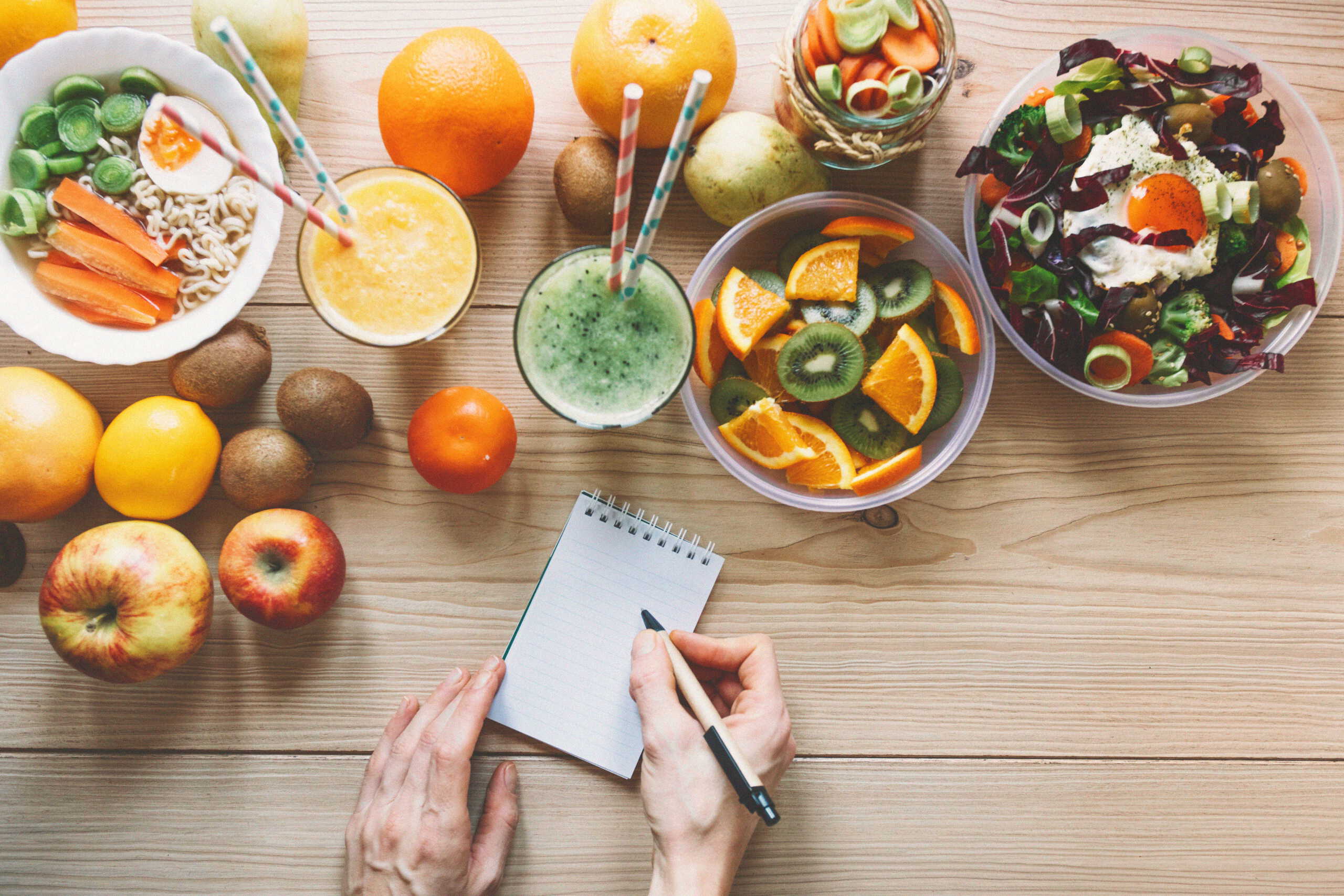The Dietary Approaches to Stop Hypertension (DASH) diet is not just a diet plan but a comprehensive lifestyle approach designed to prevent and manage high blood pressure.
As around 1 billion people worldwide suffer from hypertension, the DASH diet serves as a non-pharmacological intervention, providing a holistic solution to this global health issue.
Besides controlling blood pressure, this diet also adheres to broader dietary guidelines to prevent osteoporosis, cancer, heart disease, stroke, and diabetes.
DASH Diet Essentials: A Holistic Menu for Healthier Living
The DASH diet is based on the core principles that emphasize consuming whole, nutrient-rich foods in harmony with nature.
The diet focuses on the following dietary elements:
- Abundance of Fruits and Vegetables: The DASH diet emphasizes ample servings of fruits and vegetables, which are excellent sources of essential vitamins, minerals, and antioxidants crucial for overall health.
- Embrace Low-Fat Dairy: The diet promotes the consumption of low-fat dairy products, which provide a source of calcium without the saturated fats found in full-fat alternatives.
- Whole Grains for Wholesome Living: Whole grains are a crucial part of the DASH diet, providing fiber, nutrients, and sustained energy. Opt for brown rice, whole wheat pasta, and whole grain bread.
- Lean Proteins from Poultry, Fish, and Nuts: Proteins in the DASH diet are sourced from lean options such as poultry, fish, and nuts, which provide heart-healthy benefits.
- Mindful Sodium Restriction: The DASH diet recognizes the link between excessive sodium intake and hypertension and limits sodium consumption. The standard version recommends less than 2,300mg daily, while the low-sodium variant restricts intake to less than 1500mg daily.
Beyond Blood Pressure: The DASH Diet’s Impact on Weight Management
Although the DASH diet isn’t primarily aimed at weight loss, many followers see improved body weight.
By promoting healthier food options and a comprehensive approach to nutrition, individuals tend to adopt lifestyle changes that promote weight management naturally.
The diet’s focus on consuming whole foods, controlling portions, and reducing sodium intake is consistent with broader health objectives.
DASH Diet in Action: Lifestyle Modifications for Optimal Results
The DASH diet isn’t a one-size-fits-all solution.
It incorporates tailored modifications to suit individual needs.
Two primary versions cater to diverse health requirements:
- Standard DASH Diet: This version prescribes 2300 milligrams of sodium per day, aligning with general dietary guidelines for blood pressure management.
- Lower Sodium DASH Diet: Tailored for specific populations, including those over 51 years and individuals with hypertension, diabetes, and chronic kidney disease, this variant restricts sodium to around 1500 milligrams per day.
Lifestyle modifications associated with the DASH diet, such as weight reduction, adopting the DASH eating plan, reducing dietary sodium, engaging in physical activity, and moderating alcohol consumption, collectively contribute to blood pressure reduction.
Practical Application: A DASH Diet Daily Blueprint
Adopting the DASH diet involves more than a theoretical understanding.
It requires practical implementation in daily life.
A suggested daily intake for a 2000-calorie DASH diet includes:
- Grains: 6-8 servings daily, prioritizing whole grains like brown rice and whole wheat pasta.
- Fruits: 4-5 servings daily, embracing a variety of fresh, seasonal fruits.
- Dairy: 2-3 servings daily, focusing on low-fat options for calcium needs.
- Lean Proteins: 6 or fewer daily fish, poultry, and nuts servings.
- Nuts, Seeds, and Legumes: 4-5 weekly servings, providing additional protein and healthy fats.
- Fats and Oils: 2-3 servings daily using heart-healthy olive oil.
- Sweets: Limited to 5 or fewer weekly servings, promoting mindful indulgence.
- Alcohol and Caffeine: Recommendations on alcohol intake are provided in moderation, while caffeine consumption is not explicitly addressed.
The DASH diet transcends a mere dietary plan; it’s a gateway to a healthier, more balanced lifestyle.
By integrating these principles into daily living, individuals address hypertension and pave the way for holistic well-being.
References
- https://www.researchgate.net/publication/288592053_DASH_Diet_in_Preventing_Hypertension
- https://www.utmb.edu/food/Resources/nutrition_list/MHC-2022%20DASH%20Diet%20Plan.pdf
- https://www.nhlbi.nih.gov/files/docs/public/heart/new_dash.pdf
- https://www.healthvermont.gov/sites/default/files/documents/pdf/HPDP-Diabetes_dash%20eating%20plan.pdf
Disclaimer
- It is intended for general informational purposes only: The information provided on BioKissed’s website and app, including but not limited to business opportunities, nutrition tips, healthy lifestyle tips, healthy lifestyle practice articles, nourishing recipes, and wellness articles (hereinafter collectively referred to as „Content“), is intended for general informational purposes only. The Content is not intended to be a substitute for professional business advice, medical advice, diagnosis, or treatment.
- It is solely at your own risk: BioKissed does not recommend or endorse any specific tests, physicians, products, procedures, opinions, or other information that may be mentioned on the website or app. Reliance on any information provided by BioKissed, its employees, contracted writers, or others appearing on the website or app at the invitation of BioKissed is solely at your own risk.
- BioKissed does not endorse or approve any views in the Content: BioKissed does not guarantee the accuracy, completeness, or usefulness of any Content, nor does it endorse any views expressed within the Content. The inclusion of any Content on BioKissed’s website or app does not imply endorsement or approval of such Content.
- You voluntarily assume all such risks: Before participating in any challenge, making significant lifestyle modifications, altering your dietary practices, or engaging in any related activities, it is advisable to assess your personal health and fitness levels. BioKissed expressly disclaims responsibility for the substances individuals choose to consume, and the company is not liable for any consequences, including those related to food allergies, resulting from such choices. By choosing to participate in any challenge, you acknowledge and agree that any such activities carry inherent risks, and you voluntarily assume all such risks, even if they arise from the negligence of BioKissed, its affiliates, or its members.
- BioKissed and its content providers disclaim any responsibility or liability for consequences: BioKissed and its content providers assume no responsibility or liability for any consequence relating directly or indirectly to any action or inaction you take based on the information found on or through BioKissed’s website or app.
- Read more
